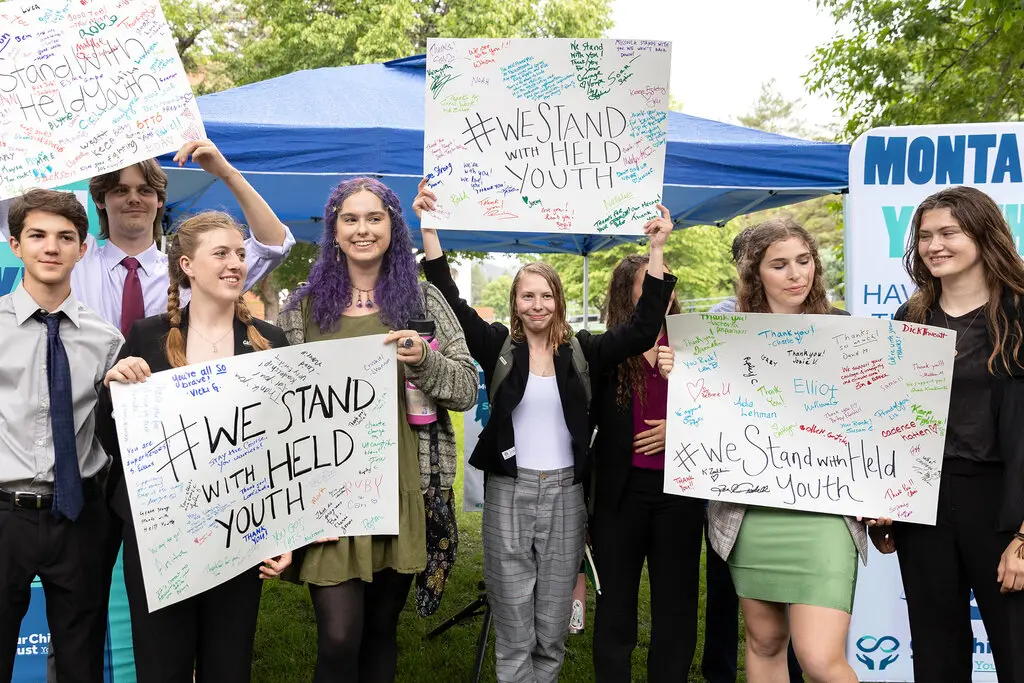Youth Climate Activists Get Major Win in Montana Supreme Court
The court agreed that the state’s energy policies violated Montanans’ constitutional right to a clean environment.
The Montana Supreme Court on Wednesday upheld a landmark victory for youth climate activists, affirming a decision by a lower court last year that the state’s energy policies violated their constitutional rights to a clean environment.
Many of the 16 young people who brought the case, Held v. Montana, testified during the trial about the extreme weather they had witnessed in their home state, which is a major player in oil, gas and coal. They argued that a state law barring consideration of climate in setting energy policy was unconstitutional. The burning of fossil fuels produces the greenhouse gases that are dangerously warming the world.
Rikki Held, 23, the named plaintiff in the case, was among those who testified. On Wednesday, she hailed the court’s decision. “This ruling is a victory not just for us, but for every young person whose future is threatened by climate change,” she said.
The plaintiffs were represented by lawyers from the nonprofits Our Children’s Trust and Western Environmental Law Center. Nate Bellinger, the activists’ lead counsel, said the decision showed that “the future of our children cannot be sacrificed for fossil fuel interests.”
Meet the Plaintiffs
Chase Scheuer, a spokesman for the Montana attorney general, Austin Knudsen, called the decision disappointing. “The majority of the state Supreme Court justices yet again ruled in favor of their ideologically aligned allies and ignored the fact that Montana has no power to impact the climate,” he said.
Patrick Parenteau, professor of law emeritus and senior fellow for climate policy at the Environmental Law Center at Vermont Law and Graduate School, said that Montana was among a handful of states with environmental provisions in its constitution, and perhaps has the strongest of them. He said he expected to see similar lawsuits filed in other states now.
Mr. Parenteau said the strong language in the opinion last year by Judge Kathy Seeley of Montana District Court had cleared the path for the decision to be upheld. Because the matter is squarely within the bounds of state law, he added, he did not see a pathway to appeal to the United States Supreme Court.
“It’s a landmark because it’s the first court in the U.S. to recognize a constitutional right to a stable climate,” he said. But it could run up against political realities, as the fossil fuel industry continues to receive strong support from state officials.
“That’s where the limits of a judicial decision like this come into play,” Mr. Parenteau said. “Not to diminish it, just to say what the reality is: It takes a much broader political consensus to really address climate change.”
Karen Zraick covers legal affairs for the Climate desk and the courtroom clashes playing out over climate and environmental policy. More about Karen Zraick



